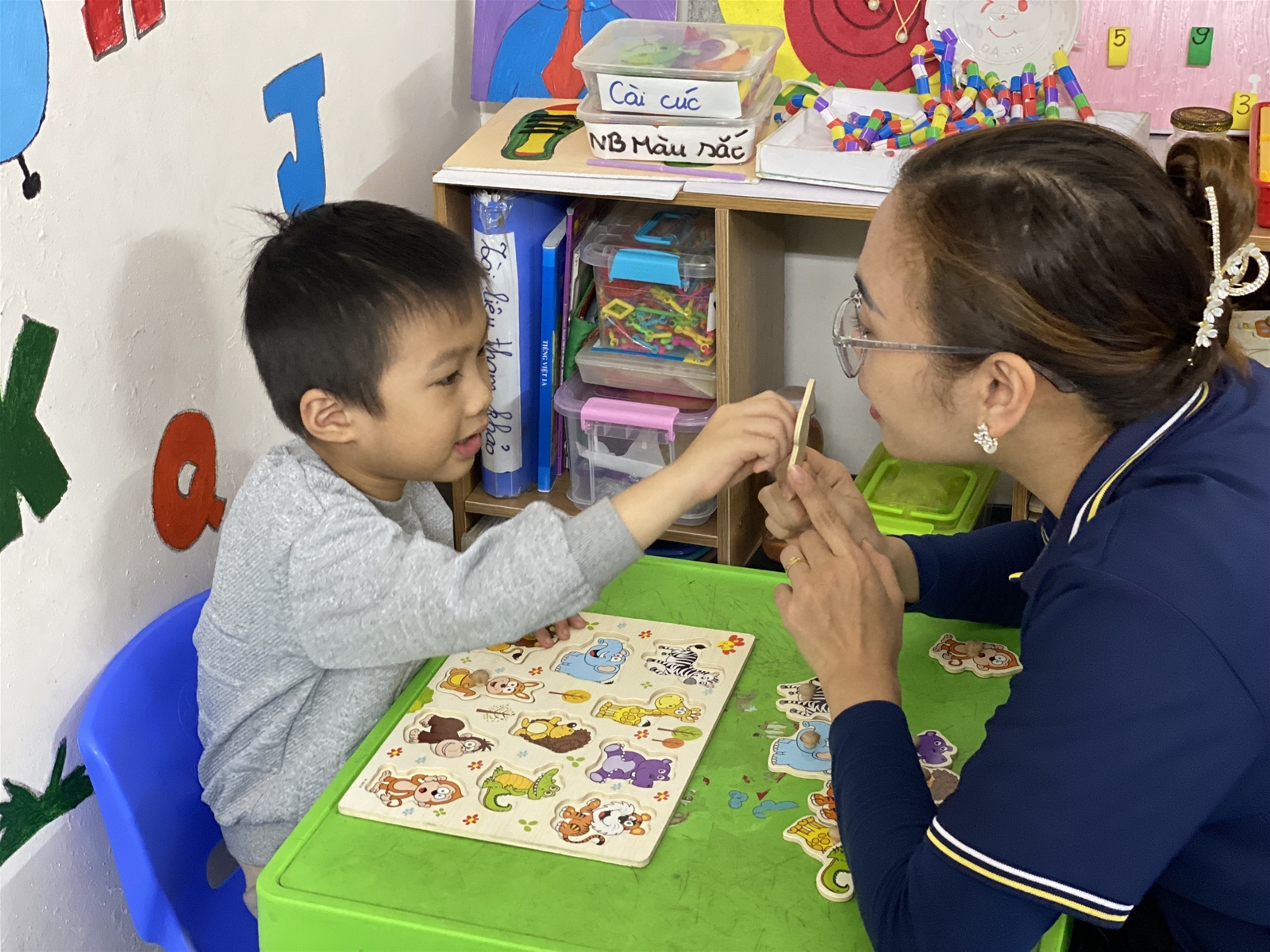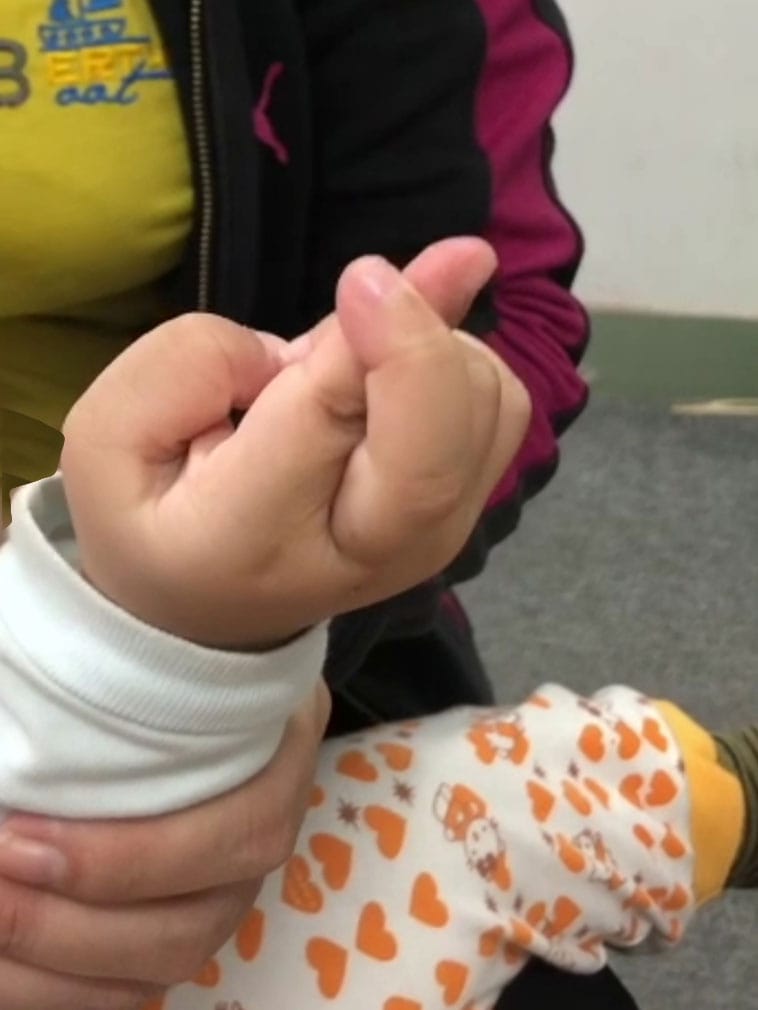If you suspect your child is slow to speak, you may wonder: Will delayed speech resolve on its own? Will my child be able to speak? Does my child need language therapy?
What is delayed speech?
Speech and language skills begin with a baby’s smallest cooing sounds, babbling, and first understandable words.
Milestones:
– At 2 years old: Speak about 50 words, have words with 2-3 syllables or short sentences.
– At 3 years old: Speak about 800 – 1000 words, express fluently, tell preschool stories.
Delayed speech is when a child doesn’t reach these typical speech milestones. It’s a common developmental issue affecting up to 10% of preschoolers.
What causes delayed speech?
Delayed speech means your child’s speech is slightly different from usual. But delayed speech can also signal an issue with overall physical and intellectual development.
Here are some common underlying causes of delayed speech:
– Speech impairment: Many children with delayed speech have oral motor issues. A problem in the brain regions responsible for speech can make it difficult for lips, tongue, and jaw to coordinate for speech. These children may also have other oral motor issues, like feeding difficulties.
– Speech and language developmental disorders: Some speech and language disorders related to brain function may be signs of learning disabilities. Your child may have difficulty articulating speech sounds, using speech to communicate, or understanding others’ communication. Speech and language issues are often the earliest signs of learning disabilities.
– Hearing loss: Children who are slow to speak, have unclear hearing, or distorted speech may struggle with language development. Hearing loss is often overlooked, but luckily, it’s easily detectable. A sign of hearing loss is if your child doesn’t recognize a person or object when you call them by name but does if you point or gesture. However, signs of hearing loss can be challenging to detect. Sometimes delayed speech or language can be a sign.
– Autism spectrum disorder (ASD): Speech, language, and communication issues can be early signs of autism.
– Neurological issues: Some neurological issues like cerebral palsy, muscular dystrophy, and traumatic brain injuries can affect the muscles necessary for speech.
– Lack of stimulation: We learn to speak from those around us. So, children may struggle to absorb speech naturally if they don’t hear spoken language, aren’t surrounded by language, or don’t interact with others. Lack of spoken language stimulation can hinder a child’s developmental milestones.
Signs of delayed speech
There are many communication milestones that a child will achieve as they grow. Some important skills to note:
– At 12 months: Babies point, wave goodbye, imitate sounds, may say a few single words.
– At 18 months: Use some gestures, understand/request simple speech, have a vocabulary of … to …, do simple tasks as directed.
– At 24 months: Can mimic speech or actions, speak single words or phrases naturally, communicate more, have a vocabulary of … to …, do simple tasks as directed.
– At 36 months: Speak at least 200 words, name objects, animals, trees, …, express clearly, understand and tell stories at school/home.
Can delayed speech or language issues resolve on their own?
Many parents want to know if their child’s delayed speech will eventually improve. With appropriate support at home, some children may catch up with their communication skills. Several factors determine whether this is feasible, such as neurological issues or cognitive delays, which may require professional intervention.
The more severe a child’s language delay, the less likely they are to outgrow it. Therapy intervention is necessary. Children need an assessment of their language development by professionals. After evaluation, children need intervention, and the sooner the better to avoid the risk of falling behind in development.
As communication skills develop, they support each other. Development at each stage is like a ladder that children must climb step by step to achieve their communication milestones.
Delayed speech can affect a child’s social and academic skills. This becomes more apparent as children enter school. Children often notice these differences and become self-conscious about their speech and communication. Children are interacting with peers who have better communication skills.
Academic outcomes may also be affected. According to the American Speech-Language-Hearing Association, children with communication issues are more likely to struggle with reading and writing skills.
Language therapy can help children develop speech. A suitable intervention plan needs to be built for the child.
If you’re concerned about your child’s speech, trust your instincts. Consult your child’s pediatrician for a referral or contact a speech-language therapist directly to evaluate speech and language abilities. Early intervention is key to helping children become clear, confident communicators. Parental support is essential everywhere, anytime, and accompanying the child’s teacher in intervention.









